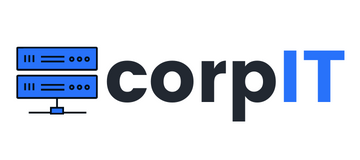Skip to content
- A major library used in most Linux distributions, xz, has been compromised and could allow attackers to take remote control of systems.
- Redis, an in-memory object storage solution, has switched to a source available license, ending its status as an open-source or free software project. The Linux Foundation has provided an alternative, open-source fork called Valky.
- Redis claims the move to a source-available license is to fight big cloud providers from shipping their products without paying, but the new license also restricts the freedoms of general users.
- The Linux desktop is working on implementing a way for applications that require access to system demons to work properly, improving Nvidia drivers, writing a new open-source kernel driver for recent Nvidia GPUs, and adding hdr support to mutter, gnome’s compositor.
- Ubuntu 22.04 will fix a problem that has plagued many users by increasing the virtual memory mapping limit, which will help with certain workflows including gaming.
- Canonical, the company behind Ubuntu, has changed the way new Snap apps can be registered on the Snap store, requiring manual reviews for every new application. They have also specifically mentioned that if the snap is a crypto wallet, it will be automatically rejected.
- Flathub is trying out new badges to let people know if apps have not been verified or published by their original developers.
- Red Hat is working on a new rust-based graphics driver for Nvidia GPUs to replace the current driver, nova. The new driver is designed to work only with recent Nvidia GPUs and will be open-source.
- EA, a popular game developer, is rolling out a new anti-cheat solution to many of their games, including Battlefield 5, which has no support for Linux. This means that these games will not work on Linux anymore.
- Linux 6.8 has been released, described as a “fairly average release” but with several reasons to be excited.
- New AMD GPU driver boasts color management for Steam Deck.
- Official kernel support for Raspberry Pi 5 with Mesa drivers 233.
- Initial Rust support for the long arc architecture.
- Security improvements in Linux 6.8, including fs crypt support for sefs and hosts side support for Intel’s Trust Domain Extensions.
- Optimizations for performance and networking, as well as improved hardware support for various devices.
- GNOME 46 released with a supercharged search in Nautilus file manager and improved notifications.
- Settings app has undergone a big makeover, making it easier to find and customize settings.
- New webdav account type and Microsoft personal account type for accessing online accounts.
- GNOME 46 enhances core apps, including improved performance and user-friendly experience for Calendar and Maps.
- Fedora 40 Beta release offers a glimpse of the final release in April.
- Fedora 40 Beta includes Pytorch, a popular machine learning framework, and os3 native containers for IoT edition.
- OpenSUSE Tumbleweed now offers the ability to run GNOME 46 and KDE Plasma 6.
- OpenSUSE Leap 15.6 Beta is expected in mid-June and includes Linux kernel 64, updates to core components, and audio improvements with PipeWire 103 and Pulse Audio 170.
- Canonical announces extended support for LTS releases, giving up to 12 years of security updates for businesses and organizations.
- Samba 4.20 brings new features and bug fixes, including the ability to search for files on Windows servers and improved cluster support.
- Inkscape receives a major upgrade under the hood with GTK4, paving the way for GPU acceleration in the open-source virtual vector graphics editor.




